QUICK LINKS:
– Affiliated Postdoctoral Scholars and Researchers
– Affiliated Graduate Students
Affiliated Postdoctoral Scholars and Researchers
 |
Sophie PitmanMaking and Knowing Project Postdoctoral Scholar (2017-2020)Sophie Pitman first joined the Making and Knowing Project not as an employee, but as a student. While researching early modern clothing in London (c.1560-1660) for her Ph.D. (which she earned from the University of Cambridge in 2017), Sophie realized that before she could train her eyes, she would need to train her hands in the crafts of making and starching ruff collars, tailoring a man’s suit, and felting beaver hats. Inspired to work with other scholars who use reconstruction as a research methodology, Sophie came to Columbia as a Visiting Student with the Project in 2016, delving into the world of dyes and textiles. Now a Postdoctoral Scholar on the Making and Knowing Project, she guides current students through their own reconstructions. Outside the laboratory, Sophie spends her days in archives and museums, performing object-based research. She is currently turning her doctoral thesis into a book, while embarking upon new research projects about tailoring during and immediately after the English Civil War (1640s-1660s), and colors and dyes in the early modern period. Email: [email protected] |
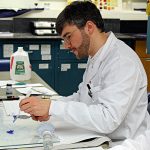 |
Tillmann TaapeMaking and Knowing Project Postdoctoral Scholar (2017-2020)Tillmann Taape spent many hours experimenting during his undergraduate studies in molecular biology. But not even his Ph.D. in History and Philosophy of Science from the University of Cambridge exposed him to the curious experiments and concoctions that fill the Making and Knowing Project’s laboratory. Tillmann first joined the Project as a paleographer, helping to transcribe and translate the manuscript from early modern French into contemporary French and English. Now a full-time team member, Tillmann unpacks the interwoven components of art and science by scrutinizing the materials, processes, and techniques used by 16th-century craftsmen and artisans and recovering their worldview. Outside his hours spent happily tinkering in the Project’s laboratory, Tillmann likes to moonlight as a classical singer. Email: [email protected] |
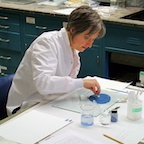 |
Tianna UchaczMaking and Knowing Project Postdoctoral Scholar (2016-2019)Tianna Uchacz knew she wanted to be an art historian from the age of 16, but it wasn’t love at first sight. An early encounter with an unimaginative art history component in high school nearly fizzled her interest, but an extraordinary teacher shattered her worldview and Tianna went on to earn a Ph.D. in art history from the University of Toronto in 2016. Pamela Smith and the Making and Knowing Project transformed her studies again, giving her the chance to consider art as not only as an end product but the result of the materials and processes wrapped up in its creation. Today she helps Making and Knowing students explore the uses and roles of plants, minerals, and animals in historical craft and art. She hopes the Project will provide a lasting model for connecting students, scholars, and practitioners from different disciplines as they work towards a common goal – one they might not have imagined they shared. Tianna hails from Woodstock, Canada – a city best known for its 10-foot statue of the Springbank Snow Countess, a cow who produced a record-breaking 9,080 pounds of butterfat during her lifetime. Email: [email protected] |
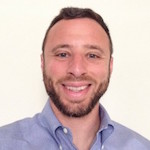 |
David BarackPresidential Scholar in Society and Neuroscience (2015-2018)David Barack is a neuroscientist and philosopher. His neuroscientific investigations target the neural circuits of foraging decisions in humans and nonhuman primates. He is particularly interested in how primates search for information, how information is encoded in the brain independently of reward, and how information guides inferences about the world. His philosophical research regards the conceptual foundations of cognitive neuroscience, especially the underlying dynamical basis for cognition. He is also interested in how foraging models from biology might provide novel normative grounds for reasoning and whether foraging models can adequately describe how primates reason in complex environments. David completed his PhD in philosophy in 2014 while at Duke University and was a postdoctoral researcher in the departments of neuroscience and philosophy at the University of Pennsylvania. Email: [email protected] |
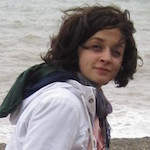 |
Ann-Sophie BarwichPresidential Scholar in Society and Neuroscience (2015-2018)Ann-Sophie Barwich is a philosopher and historian of science with specialization in biology and chemistry. Her work is on current and past developments in olfactory research. She received her PhD at Exeter (Egenis/The Centre for the Study of the Life Sciences) under the supervision of John Dupré in 2013, before taking up a postdoctoral fellowship at the Konrad Lorenz Institute for Evolution and Cognition Research. Her thesis examined classification and modeling strategies through which scientists have linked odors to a material basis (botanical, chemical, molecular-biological, neurophysiological), and her postdoctoral project concerned the role of methodology in measurement and wet-lab discovery. As a new Scholar in the Presidential Scholars in Society and Neuroscience program, she will focus on the role of ‘research routines’ in scientific training and practice. Email: [email protected] |
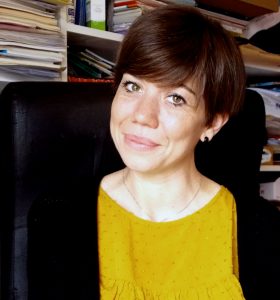 |
Federica CoppolaPresidential Scholar in Society and Neuroscience (2017-2020)Federica Coppola will study how psychological and neuroscientific knowledge about the role of emotions in moral decision-making and social behavior might impact how people accused of violent crimes are judged and punished by the court of law. Her ultimate goal is to use scientific findings to reform the current restrictive and retributive approaches to criminal violence, and help create a more humane justice system by focusing on social rehabilitation. Working alongside lawyers, psychologists, neuroscientists, and psychiatrists, Federica will also explore how restorative justice-based programs, along with social and emotional training programs can be effective correctional interventions. Before earning her Ph.D. in Law from the European University Institute in 2017, Federica was a practicing attorney; in her first trial, the victim was a cat. Federica is the first Robert A. Burt Presidential Scholar; the position honors the late PSSN co-founder Robert A. Burt. Email: [email protected] |
 |
Andrew GoldmanPresidential Scholar in Society and Neuroscience (2015-2018)Andrew Goldman draws on his training as a concert pianist and composer to study the cognition and neuroscience of musical improvisation. Andrew’s experiments explore how degrees of improvisation experience in musicians and dancers affect sound perception and motor planning. His research helps define what improvisation is, how people learn to do it, and the role improvisation plays in daily life. Together with colleagues, he recently has found that experienced improvisers categorize musical harmonies more according to function than a specific sound, which aids their ability to use those harmonies flexibly when they improvise. Understanding the differences in knowledge between experienced improvisers and experienced musicians who do not improvise can help us understand creative ways of knowing. Before joining the PSSN program, Andrew received his Ph.D. from the University of Cambridge in 2015. While there he wrote Science! The Musical, which premiered in 2014 and was recently produced in New York City. Email: [email protected] |
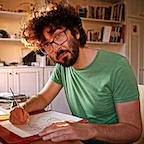 |
Matteo FarinellaPresidential Scholar in Society and Neuroscience (2016-2019)Matteo Farinella has been reading comics for as long as he can remember. He soon began to create his own, which he continued throughout his Ph.D. studies in neuroscience at University College London. Only later did Matteo combine his passions by investigating how visual narratives can be used to increase scientific literacy. Comics aren’t just for children – the medium’s combination of art and writing provides a new visual methodology for explaining and displaying complex scientific ideas. Matteo has focused on theories of storytelling, using insights from cognitive neuroscience and psychology to understand how visual narratives can benefit science education and communication. Matteo remains an accomplished artist; his first book, Neurocomic, was published in 2013 and his 9-foot drawings of neurons are on display in Center for Science and Society’s offices. Email: [email protected] |
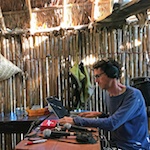 |
Nori JacobyPresidential Scholar in Society and Neuroscience (2016-2019)Nori Jacoby studies how different cultures use music and sound to make sense of the world around them. He earned a Ph.D. in computational neuroscience from the Hebrew University of Jerusalem before accepting a postdoctoral position in computational audition at MIT. He then traveled the world to explore musical perception across cultures. Neuroscience has often struggled to quantify the non-verbal experience, but Nori is able to explore these complex representations by creating new paradigms for scientific analysis that incorporate techniques from anthropology and ethnomusicology. For example, after discovering that students from Bolivia to South Korea seem to hear music in various similar ways, presumably because many of them listen to the same Western artists and genres, Nori was surprised to find that residents of the same city often have different interpretations of rhythm that correspond to the styles of music they regularly practice. Email: [email protected] |
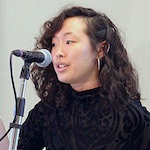 |
Lan A. LiPresidential Scholar in Society and Neuroscience (2016-2019)Lan Li barely passed her high school history classes. But after playing Thomas Huxley – Darwin’s “bulldog” who fiercely defended natural selection – in a role-playing history seminar, she was hooked on the history of science. Years later, Lan received her Ph.D. in Science, Technology, and Society Studies at the Massachusetts Institute of Technology. Her research focuses on visualizing the body across cultures and forms of medical exchange across Asia and Europe. Lan helps rethink how we understand the nervous system in the skin and in the body beyond the brain. As a PSSN scholar, her collaborations include projects on nerve damage, aging, and pain. Lan is also a filmmaker, producing short films about medicine and health among immigrant communities in the United States. During her free time, Lan plays the guzheng, a 21-stringed Chinese zither. Email: [email protected] |
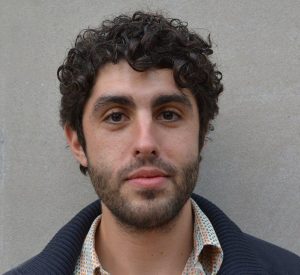 |
Noam ZerubavelPresidential Scholar in Society and Neuroscience (2017-2020)Noam Zerubavel is a social and neural scientist. He is broadly interested in understanding the building blocks of human relationships and group life. As a Presidential Scholar in Society and Neuroscience, Noam will investigate the organizing sociological principles, psychological processes, and neural mechanisms that engender social ties and shape their network structure. This line of research integrates theories and methods from sociology, social psychology, and cognitive neuroscience to investigate questions that keep him up at night. For example, How do our brains track group members’ status? Why is dyadic liking typically—but not always—reciprocated? How can we leverage neuroimaging techniques to better predict individuals’ unique patterns of interpersonal attraction? Noam completed his PhD in psychology with Kevin Ochsner and postdoctoral training in social network analysis with Peter Bearman at Columbia University. Email: [email protected] |
Affiliated Graduate Students
| Desiree Abu-Odeh | PhD student; Sociomedical Sciences | |
| George Aumoithe | PhD student; United States History | |
| Roy Bar Sadeh | PhD student; Middle East History | |
| Ian Bradley-Perrin | PhD student; Sociomedical Sciences | |
| Eunsung Cho | PhD student; PhD student; East Asian History | |
| Sarah Cook Runcie | PhD student; African History | |
| Sau-yi Fong | PhD student; East Asian History | |
| Angela Giordani | PhD student; Middle East History | |
| Devon Golaszewski | PhD student; African History | |
| Charles Halvorson | PhD student; United States History | |
| Eric Herschthal | PhD student; United States History | |
| Yanjie Huang | PhD student; East Asian Languages and Cultures | |
| Alma Igra | PhD student; British History | |
| Abram Kaplan | PhD student; Early Modern European History | |
| Jordan Katz | PhD student; Early Modern/Jewish History | |
| Michael (Mookie) Kideckel | PhD student; Environmental History | |
| Ulug Kuzuoglu | PhD student; International/Global History | |
| Owain Lawson | PhD student; Middle East History | |
| Lei Lei | PhD student; Chinese Literature | |
| Wallace Scot McFarlane | PhD student; Environmental History | |
| Antonio Mendoza | PhD student; United States History | |
| Melissa Morris | PhD student; United States History | |
| Victor Petrov | PhD student; Modern Western Europe | |
| Aaron Plasek | PhD student; History of Science | |
| Robin Reich | PhD student; Medieval Europe | |
| Tristan Revells | PhD student; Chinese History | |
| Peter Roady | PhD student; United States History | |
| Nataly Shahaf | PhD student; East Asian Languages and Cultures | |
| Shulamit Shinnar | PhD student; Jewish History | |
| Pierre-Etienne Stockland | PhD student; Early Modern European History | |
| Divya Subramanian | PhD student; International and Global History | |
| Yijun Wang | PhD student; Chinese History | |
| Yuan Yi | PhD student; Chinese History | |
| Wenrui Zhao | PhD student; Early Modern European History |
Former Postdoctoral Scholars
| Donna Bilak | Lecturer in Discipline (2014-2017) | |
| Joel Klein | Lecturer in Discipline (2014-2017) | |
| Jenny Boulboulle | Lecturer in Discipline (2014-2016) |
